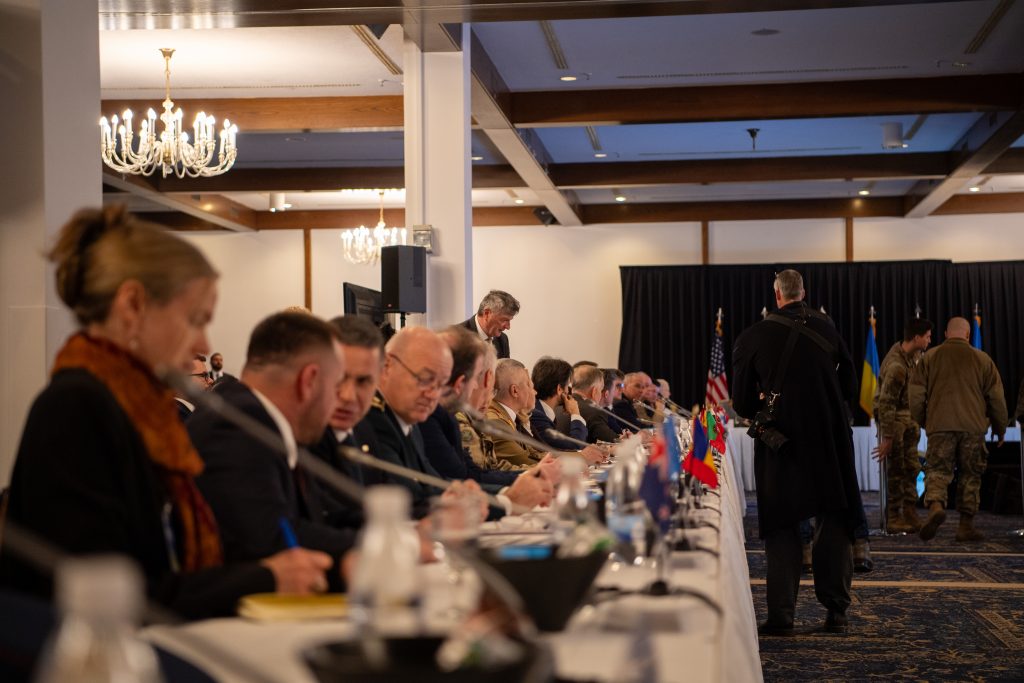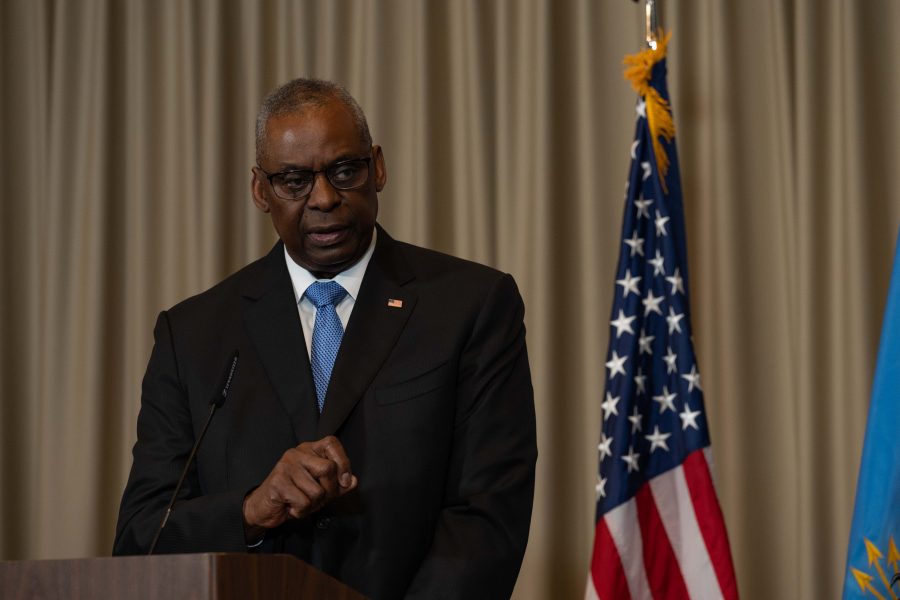Secretary of Defense Lloyd J. Austin III warned March 19 that Ukraine could fall to Russia if the U.S. does not come through with more military assistance.
“Today, Ukraine’s survival is in danger,” Austin told reporters at a press conference at Ramstein Air Base, Germany. “America’s security is at risk. And they don’t have a day to spare, either.”
Austin’s remarks came as he and Gen. Charles Q. Brown Jr., Chairman of the Joint Chiefs of Staff, were in Europe to meet with the Ukraine Defense Contact Group, a roughly 50-member coalition organized by the U.S. to aid to Kyiv in its defense against Russian aggression. The meetings have grown awkward, as the U.S. has failed in recent meetings to muster much aid for the Ukrainians.
A $300 million aid package, the first new aid from the U.S. in months, was announced on March 12 after the U.S. Army identified savings that could be applied to Ukraine. But even U.S. officials acknowledged the limited nature of the aid, mainly aimed at shoring up Ukraine’s artillery shortage and air defenses, and described it as a one-off, unexpected stopgap.
U.S. aid has stalled, as Congress has tried but failed to pass measures to fund continued support. The Biden administration has sought supplemental funding and at one point agreed to package the bill with border security legislation, but after initially backing the bill, many Republicans withdrew their support when former President Donald Trump opposed it. So while there is bipartisan support for more aid to Ukraine in both houses of Congress, passage has been caught up in challenging politics involving both the border and support for Israel in its war with Hamas in Gaza. Speaker of the House Mike Johnson (R-La.) has balked at putting a bill on the floor.
Austin, making his first foreign trip of 2024 after being hospitalized in January for complications from surgery to treat prostate cancer, acknowledged Russia’s recent “incremental gains,” noting that they came “at significant costs in terms of personnel and equipment.” But Ukraine is similarly challenged, facing shortages of manpower—its legislature is debating a new conscription bill—and artillery munitions—as U.S. and European suppliers struggle to keep up with demand. The Czech Republic is leading an effort to procure 800,000 artillery shells. Germany, France, Denmark, and Sweden also recently provided aid.

Ukrainian officials “feel confident in their ability to continue to defend their sovereign territory and hold the line,” Austin said. “Of course, they need munitions, they need support in order to be able to continue to do that and, of course, that’s where the supplemental comes in. And we certainly would hope that we will see this supplemental get passed soon. I continue to see broad support in both chambers of Congress for Ukraine, and so I’m optimistic that we will see some action moving forward.”
Many aid proposals at past meetings of the Contact Group focused on long-term assistance, such as providing U.S.-made F-16s to build a Western-style air force and training combined arms units. But after Ukraine’s counteroffensive in the summer of 2023 failed, the U.S. focus has begun to shift back to the present.
“Over time, we’ll shift from a focus on the current fight solely to more of a focus on building a longer-term capability for Ukraine,” Austin said. “But for right now, we’re focused on making sure that we can get Ukraine security assistance that it needs to be successful today and in the near and midterm.”
The administration has tried to assuage concerns over how U.S. aid is spent. It launched a public website on March 19, detailing U.S. government oversight of Ukraine assistance—as required by the 2024 National Defense Authorization Act. Biden administration officials also have argued that providing U.S.-made equipment has helped fuel U.S. employment.
Fueling a deadly war and talking up jobs at home, however, have often made for awkward domestic politics. But overseas, the issues are clear, Austin said. “That’s a matter of survival and sovereignty for Ukraine,” he explained. “And it’s a matter of honor and security for America.”
